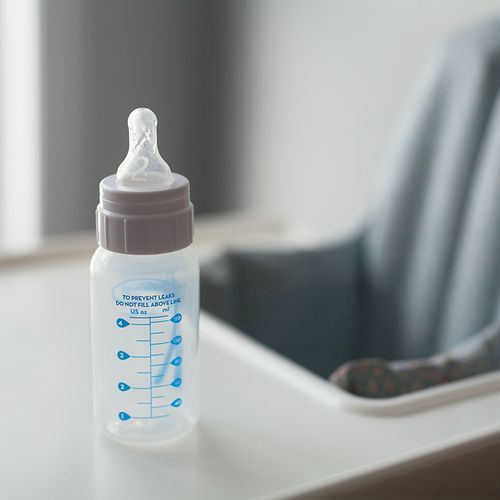Environmental health organizations in the United States and Canada are calling for a ban on the use of the chemical bisphenol A (BPA) in baby bottles, toddler cups, water bottles and other food and beverage containers.
"This is cause for concern. All 19 polycarbonate bottles investigated in the study leached BPA when heated. This clearly shows that BPA is certainly leaching from popular and common consumer products," said Judith Robinson, special projects director with the Environmental Health Fund. "We're calling for an immediate moratorium on the use of BPA in all baby bottles, as well as all food and beverage containers. It's not necessary, and we're calling for an end to it immediately."
Two Studies Show BPA Leaches From Bottles
The call for a ban coincides with publication of a new study, "Baby's Toxic Bottle: Bisphenol A Leaching from Popular Brands of Baby Bottles," commissioned by the same group of organizations, showing that BPA leaches from popular brands of plastic baby bottles when the bottles are heated.
This study comes just days after another study found that exposing plastic bottles in general to boiling water can release BPA 55 times faster than normal.
Risks Of BPA
There is concern in many quarters that BPA, an environmental estrogen, may pose some risk to development and reproduction, although it's unclear at what level that harm begins.
The fear has been that exposure to BPA can cause birth defects and developmental problems. Exposure to BPA has also been blamed for a variety of other problems, including cancer, diabetes, obesity and attention-deficit disorder.
David Carpenter, MD, a professor of environmental health sciences at the State University of New York at Albany School of Public Health said BPA taken into the body before birth and in the early years of life could alter the ratio of sex hormones and affect development.
"It's absolutely obscene to use a substance that can make little boys less masculine and opens the chance that little girls will go on to develop breast cancer," he said.
Plastics Industry Reaction
A representative of the plastics industry, however, dismissed the alarm.
"The data that is presented has been known for years," said Steven Hentges, PhD, executive director of the American Plastics Council's Polycarbonate Business Unit. "Most importantly, data of that type has been reviewed by government agencies around the world in their comprehensive reviews on BPA and, in every case, they reach a conclusion even after considering this kind of data that polycarbonate baby bottles are safe for use."
Baby Bottles Tested
The new report tested six major brands of plastic baby bottles available at major retailers, including Walmart and Babies-R-Us, in the United States and Canada. According to the study. 95% of baby bottles on the market contain BPA.
The brands tested—which included Avent, Disney/The First Years, Dr. Brown, Evenflo, Gerber and Playtex-all leached BPA when heated. According to the study authors, these same levels of BPA caused a range of adverse effects in laboratory animals.
Among US bottles, the Dr. Brown brand had the highest level of leaching while Avent brand bottles had the lowest levels, the report said.
